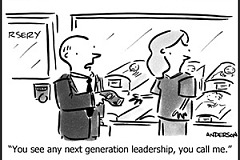Knowing and understanding your customers’ needs lies at the heart of every successful company, whether it sells directly to individuals (B2C) or other businesses (B2B). Once you get this knowledge, you’re in a much better position to persuade potential and existing customers to buy from you. You’ll run more effective marketing campaigns, customize your products or services to meet buyers’ needs and build stronger relationships with them.
But knowing your customers is more than simply gathering their demographics. You also want to know facts, such as their occupations and interests, and why they might need your product or service.
You want to know how to predict when they’re in the market for your offering, how much they are willing to pay for your product, and what factors make them feel good about making a purchase.
Examine their opinion of your company versus your competitors and the sort of service they expect from you. This information is important for more than simply achieving sales. It’s also critical for achieving business success because it:
- Helps you hire the right people. Understanding your customers' needs and preferences can help you identify the type of employees you need to hire to meet requirements. For example, if you are running a customer service team, you may want to hire someone with excellent communication skills who can address customer concerns effectively.
- Enables you to avoid problems. In-depth knowledge of your customer base allows you to anticipate potential problems or conflicts and take proactive steps to avoid them. For example, if you know that a particular customer is highly sensitive to a certain issue, you can avoid promoting it to that market segment.
- Facilitates building and leading a great team. When you understand your customers, you can build and lead a great team that is aligned with your customers' needs and preferences. This can help create a customer-focused culture committed to providing excellent service and building strong customer relationships.
- Supports effective selling methods. Knowing your customers’ preferences lets you adjust your selling methods to match their requirements. This can help you sell more effectively, as customers are more likely to purchase products and services if they have a delightful customer experience.
- Creates quality communication standards. A detailed knowledge of your customers' communication styles and preferences can help you engage with them more effectively and avoid frustration. For example, if a customer prefers to communicate via email rather than phone, you can modify your approach to ensure that they receive the information they need in the best way for them.
By developing a comprehensive understanding of your target audience, you can use your knowledge to improve your company’s performance.
How Behavioral Profiling Helps
There are many ways to get to know your customers’ preferred communication style, but DISC is a behavior profiling tool widely used to achieve this objective. DISC works by categorizing your customers or prospects into four distinct behavioral styles: Dominance (D), Influence (I), Steadiness (S), and Conscientiousness (C).
Why is communicating with your prospects and clients in the communication style they prefer so important? Have you ever talked to someone that took forever to get around to what they needed to say, and it drove you crazy? Or have you ever dealt with someone who had a personality that was cold, insensitive, and devoid of human emotion? Did you enjoy those conversations? That’s what happens when communication styles are misaligned. Let’s fix that!
The tool categorizes people based on their behavioral traits, and it can be an effective way to gain insights into your customers' needs, preferences, and communication styles.
- Dominant people (D) tend to be assertive, competitive, and results oriented. They value getting things done quickly and efficiently and may be more willing to take risks. They are the “Joe Fridays” of the world – “Just the facts ma’am.” They want the big picture and will ask for the details if desired.
- Influential individuals (I) tend to be outgoing, expressive, and relationship oriented. They value social interaction and may be more willing to take risks. These are the people who can riff for 10 minutes on just about anything. They are the “Chatty Cathys” of the world and are often found in sales.
- Steady people (S) tend to be patient, reliable, and team oriented. They value stability and predictability and may be more resistant to change. These are the quiet ones who don’t speak up and who you may have difficulty getting to state their opinion on things and may resist changes. They are often caring; they are helpful people, so think “Mother Theresa” when talking to them.
- Conscientious individuals (C) tend to be analytical, detail-oriented and focused on quality. They value accuracy and may be more resistant to change. The archetype is the CPA. They don’t want to be wrong. They take time to consider things in order to get to the right answers. They want all the details.
All of us have one or two of these traits that are dominant so try to determine the style a person prefers and start there. But understand that people can also adapt and show other styles. For example, one client’s treasurer was a detailed as heck “C” but had a great “I” type communications style in social circumstances.
By understanding your customers' behavioral styles, you can gain insights into their communication styles, decision-making processes, and how they prefer interacting with others. This information can help you tailor your approach to meet their specific needs and preferences.
Applying Your Knowledge to Build Success
Once you understand your customers' behavioral styles, you can adapt your marketing and sales strategies to meet their specific needs by implementing the following actions:
- Develop detailed customer personas using psychographic data.
- Identify their pain points, purchasing preferences, and intent.
- Customize your outreach and communications to appeal to and reach all segments.
- Tailor your products and services to meet customer requirements.
- Communicate using channels and tactics you know will reach your prospects.
- Hire the right employees and train them appropriately to engage with your audience.
- Create trust and increase customer loyalty, improving the chances of repeat business.
Knowing your target audience intimately will yield numerous benefits for your business. By developing more effective marketing campaigns, tailoring your products or services to meet their needs, building stronger relationships, and increasing customer loyalty and repeat business, you can create a more prosperous and profitable company.
How the DISC Tool Fuels Success
Understanding your customer is essential to building a successful business. The DISC personality assessment tool can help you gain insights into your customers' needs, preferences, and communication styles. This allows you to shape your offering to meet their demands and market your products more effectively, generating trust and promoting customer retention. Start using this strategy to build a thriving business that stands out from the competition and is victorious over the long term.
Want to Know More?
Want to explore further or put the power of DISC to work in your business? Have questions? – Get in touch and let's set up a time to talk, we’re experts. Brian Tracy USA: 877.433.6225 Email Me feedback@focalpointcoaching.com
Resources:
- https://www.infoentrepreneurs.org/en/guides/know-your-customers--needs/
- https://www.forbes.com/sites/forbesbusinessdevelopmentcouncil/2022/06/29/for-greater-success-get-to-know-your-customer/
- https://www.researchoptimus.com/market/customer-behavioral-analysis.php
- https://www.lytics.com/blog/how-behavioral-customer-profiles-drive-intention-and-media-engagement/
- https://www.automationninjas.com/blog/what-is-customer-profiling/
- https://www.discprofile.com/what-is-disc/disc-style
- https://www.smartkarrot.com/resources/blog/customer-profile/
- https://www.qualtrics.com/experience-management/customer/customer-profile/
- https://blog.smile.io/employee-engagement-leads-customer-loyalty














